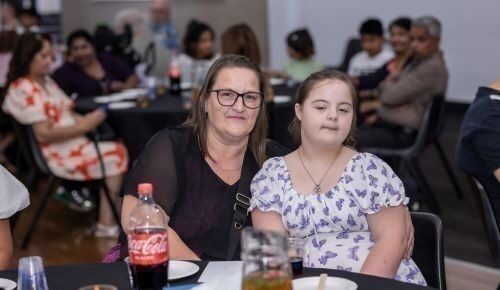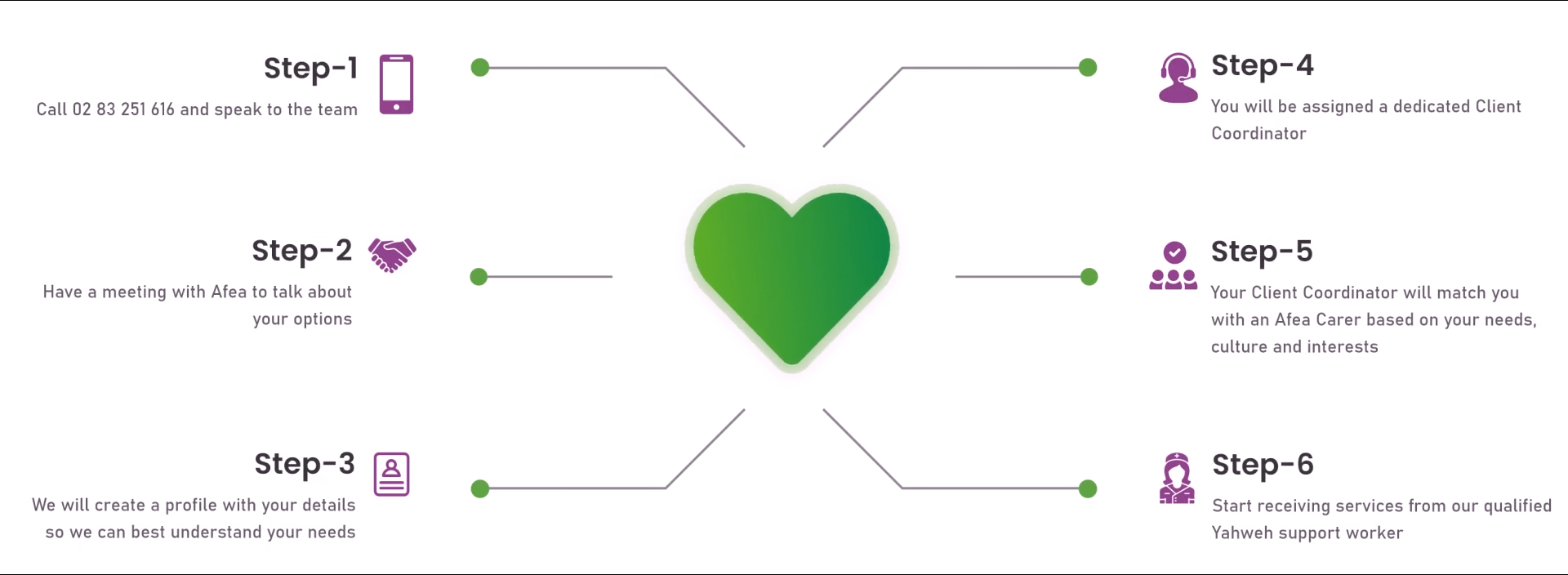SWITCH TO YAHWEH CARE
Providing care and holistic approach to NDIS participants aiming to create opportunities for you to live your best life.
Contact UsDiscussion about the integration of mental health support in disability services.
Mental health support is essential for participants in the National Disability Insurance Scheme (NDIS). It has a major effect on their general health and standard of living. It allows people with impairments to participate completely in social relationships, employment, education, and everyday activities.

The NDIS acknowledges that mental health gets impacted by a disability. It supports participants’ mental and emotional requirements so they can live with satisfying lives. People with disabilities may find it more difficult to accomplish their goals, interact with services, or even handle everyday responsibilities if they are experiencing mental health issues.
Here’s how NDIS can be beneficial
Higher levels of independence are associated with mental health. It facilitates better decision-making, improved coping mechanisms, and resilience building. As a result, participants adopt proactive measures when they are in good mental state. These include establishing reasonable goals and taking care of oneself.
Isolation and disengagement can result from mental health issues. Nonetheless, when given the proper support, it aids people in managing ailments like PTSD, sadness, and anxiety. It allows them to participate more actively in educational, social, and communal contexts.
Mental health services may empower individuals by giving them the tools to take charge of their own health. By promoting a sense of autonomy and control, access to mental health support empowers individuals to make well-informed decisions regarding their care, support systems, and personal choices.
Physical health issues like increased pain, exhaustion, or disturbed sleep can be exacerbated by poor mental health. These may impact a person’s capacity to manage their impairment. It is crucial to address mental health requirements for improved physical health results.
Many NDIS participants have trouble finding the right assistance or navigating the system. In the NDIS system, mental health assistance can help participants advocate for themselves, understand their rights, and access pertinent resources.
Support for mental health can aid NDIS participants in acquiring the skills they need. These include improved coping strategies, resilience, and stress management techniques, which lower the risk of burnout and increase their capacity to deal with life’s ups and downs.

People with disability can access a variety of mental health assistance. These are intended to help with mental health concerns while people are also dealing with their disability.
Here are some key services available:
Psychological therapy
Psychological therapy treatment aims to help NDIS participants in managing their mental health conditions. These include depression, anxiety, and PTSD. Individual therapy sessions and assistance with emotional management are examples of services. Clinical psychologists provide more advanced evaluations and therapies for those with more complicated mental health problems.
Counseling Services
NDIS participants can receive a variety of counseling services, such as person-centered or solution-focused therapy, to help them deal with interpersonal problems, trauma, loss, or emotional difficulties. Support staff can also help participants cope by providing continuing counseling and direction.
Behavioral Support
Experts can develop a personalized behavior support plan to help participants deal with difficult habits. This plan could include teaching coping mechanisms, relaxation methods, or different ways to express emotions. Experts also provide advice appropriate for everyday life issues and emotional assistance.
Programs for Social and Emotional Wellbeing
Some providers provide group treatment sessions. This gives participants a place to meet people dealing with comparable mental health issues. Peer support can offer emotional support, lessen feelings of loneliness, and offer helpful coping mechanisms and insights. It can foster a feeling of community and lessen loneliness.
Psychiatric Assistance
Mental health nurses can help manage mental health disorders, provide medication assistance, and help people navigate mental health crises for those who require more specialized treatment. For those with complicated mental health issues, psychiatrists can provide diagnosis, medical care, and pharmaceutical management.
Encourage Coordination
These experts connect NDIS participants with mental health clinicians, assist them in navigating the system, and help them obtain care. By their NDIS plans, support coordinators are essential in directing participants to the right mental health providers.
Crisis Support
For those going through a mental health crisis, these services can include mobile crisis teams that can offer on-the-ground care or 24/7 emergency support, such as mental health hotlines.
Out-of-Home and Residential Care
For those in need of disability mental health services, group homes or residential care are alternatives that offer 24-hour mental health support and care in a controlled and secure setting.
Specialist Disability Accommodation (SDA)
SDA’s customized accommodations help participants. It includes both physical space and mental health support services.
Exercise and Lifestyle Programs
Programs for Exercise and Lifestyle can be customized for each person. There are yoga sessions or structured fitness regimens. These can promote mental and physical balance.
Telehealth and Online Services
Many mental health agencies provide online consultations. These services offer virtual counseling, therapy sessions, and psychiatric consultations, allowing participants to access accessible support.
Recovery Programs
The strengths-based approach Australian government programs can benefit participants with mental illness. Coaches help NDIS participants set objectives and develop resilience.

Practical Strategies For Balancing Emotional Wellbeing With Disability Care
Maintaining a good balance in overall health is crucial for carers and people with impairments.
Here are some practical strategies to consider.

Offering various specialized services to assist individuals with disabilities in gaining more independence and enhancing their quality of life is the core of Yahweh Care’s responsibility under the NDIS.
NDIS users can get personal care services through Yahweh Care. These services help people live more independently in their homes by providing assistance with everyday activities like eating, dressing, bathing, and grooming.
They help individuals with disabilities manage their everyday tasks and routines. This can help people live independently by helping with meal preparation, transportation, domestic duties, and appointment scheduling.
To encourage social participation and lessen loneliness, Yahweh Care provides assistance to people with disabilities. This support allows them to participate in social events and community activities. This could mean planning activities for a group or helping people get to social events, service opportunities, or fun things to do.
Yahweh Care works with people to help them learn skills that make them more independent and better handle daily tasks. This could mean learning life skills or getting help setting and reaching personal goals.
If you want to know more about mental health support in disability services integration, contact Yahweh Care.
Providing care and holistic approach to NDIS participants aiming to create opportunities for you to live your best life.
Contact Us


